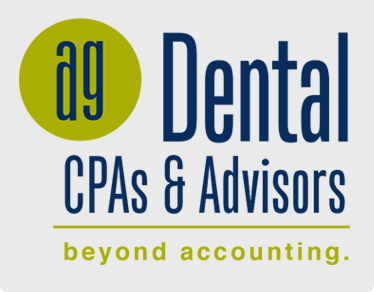
You are responsible for many non-clinical tasks as a dental practice owner, including human resources, tax filing, contracts, and insurance. When ignored, these things can inhibit growth and even cause significant problems in a business.
The practice of keeping accurate accounting records is known as bookkeeping. A company’s sustainability depends on its records. In addition to managing cash flow and meeting financial obligations, accurate bookkeeping helps businesses plan their investments.
In the eyes of some business owners, it is a tedious task that must be completed before their CPA can file their taxes. Keeping clean books can help you do more than just file your tax return on time. You can use it to spot fraud, map business growth and identify areas of overspending.
Types of financial ledgers
A financial ledger shows your company’s profit and loss. A comparison is made between the revenue coming in and the expenses going out.
Profit and loss statements and balance sheets are the most important ones to review.
Balance Sheet
Essentially, a balance sheet is a statement of a company’s assets, liabilities, and owner’s equity at a particular point in time. The balance sheet is typically prepared at the end of a set period (e.g., quarterly or annually). There are two columns on a balance sheet. On the left, you can see the company’s assets. Liabilities and owner’s equity are listed to the right.
A balance sheet provides important information to a business owner about the health of the company. The owner, however, isn’t the only person who looks at the balance sheet. If you plan to sell your practice, lenders, investors, partners, or buyers will review it when you apply for financing.
Profit and loss statement
In finance, a profit and loss statement (P&L) shows a company’s revenues and expenses during a particular period. This statement explains how revenues are transformed into net income.
In addition to recording the practice’s collections, the P&L separates your statement into two sections:
- Direct expenses: costs that vary according to production. As you see more patients, these costs will increase—like lab fees, supplies, hygiene, and chairside salaries.
- Fixed expenses are costs that are specific to your company and remain constant regardless of the quantity of goods or services produced.The cost of your building rent, insurance, pension, or subscriptions, for example, is the same month to month, regardless of your production level.
By tracking both direct and fixed expenses, the business can identify overspending or areas for growth.
It is important to be organized.
No matter who manages this report, whether you do it yourself or hire a bookkeeper, a poorly organized P & L will not be helpful. Expenses should not be listed in separate categories on five pages. As with tracking your personal expenses, categorizing your expenses allows you to focus on the big picture. You will not use it if it is not usable.
An organized P & L allows you to sit down every year and review where your business is this year to date, last year, and even the year before. As a result, you can spot outliers and trends.
A monthly review is also very important. There may be things that come through that you will not remember at the end of the year. For example, if your insurance fees were extremely high last month, you will remember that you had paid your annual insurance premiums. Given everything you have going on, it is unlikely that you will remember each detail like this at the end of the year.
Our dental CPA in Baton Rouge can not proactively plan your tax projections if your books are not up-to-date. Furthermore, if you only prepare them for a six- or nine-month period, they will be unable to strategize for you.
Outsourcing
It is important to leave financial statement management to a professional to ensure that all the categories are reported consistently, as well as to ensure that bank and payroll reconciliations are done on a monthly basis, which allows the owner to ensure that they are always tied to cash. It is also possible to detect fraud by staying organized.
In addition to other benefits, having good, clean books will make filing your tax return easier for your tax preparer. It can save you both time and money on your tax bill. As a result, it is cheaper, but it also prevents errors from occurring. You pay more in taxes when stuff gets missed.
It’s not only time-saving to have a professional accountant handle your monthly bookkeeping; it’s also strategic.
Rather than categorizing expenses, owners can now use the output strategically to enhance their businesses. It could be that accounts receivable have been running too high and have gone unnoticed, or lab supplies have gradually risen over the past six months. Early insight into changes can increase profitability in the short and long term. To schedule a consultation with one of our experts, please contact our Baton Rouge, LA dental accounting office today.
AG Dental CPAs and Advisors
Phone: (225) 767-1020
6421 Perkins Road, Bldg A, STE 1B
Baton Rouge, LA 70808



